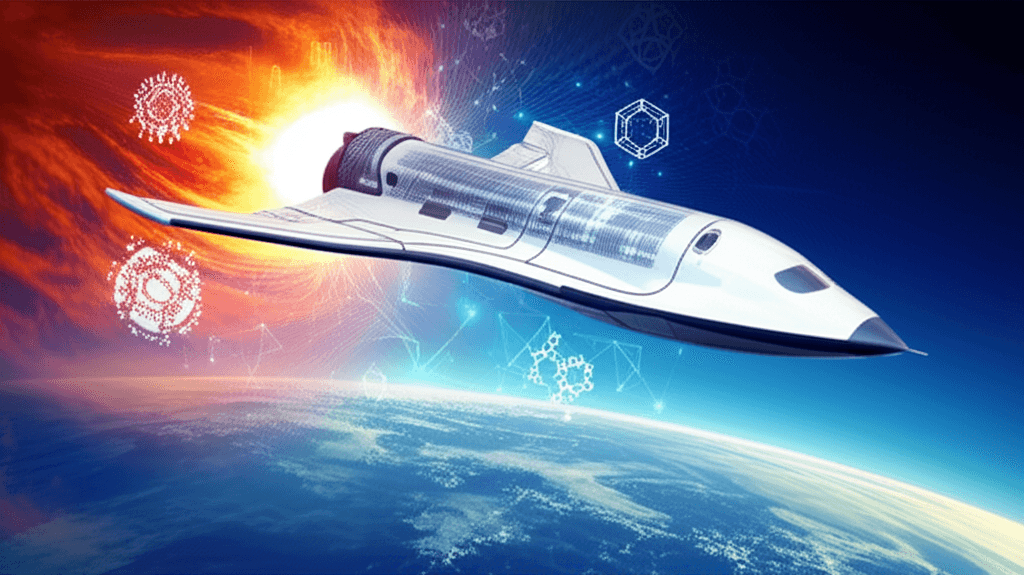AI Powers India's Inbound Aerospace to Build Reusable Space Return Craft
Inbound Aerospace raises $1M to master crucial space re-entry, enabling India's in-orbit research and manufacturing future.
July 23, 2025

In a significant boost to India's burgeoning private space technology sector, Chennai-based startup Inbound Aerospace has successfully raised over $1 million in a pre-seed funding round. The investment, led by Speciale Invest and with participation from Piper Serica, will fuel the company's ambitious goal of developing and launching an autonomous, reusable re-entry spacecraft.[1][2] This move positions Inbound Aerospace as a key player in the race to create foundational infrastructure for a future space economy, with a particular focus on a critical, yet often overlooked, component: bringing things back from space. The company's vision extends beyond mere launch capabilities, aiming to establish a reliable and cost-effective method for returning payloads from orbit, a service that will become increasingly vital as in-space research and manufacturing activities expand.
Founded in 2025 by Aravind I B, Vishal Reddy, and retired Navy Captain Abhijit Bhutey, Inbound Aerospace is an IIT Madras-incubated startup.[3][4] The founders have identified a crucial gap in the current space ecosystem.[1] With the International Space Station (ISS) scheduled for decommissioning in 2030, the world will lose its primary platform for microgravity experiments and research.[3] Inbound Aerospace aims to fill this void by providing a dedicated, recoverable spacecraft platform. This will enable customers, including pharmaceutical companies, biotech firms, and materials science researchers, to conduct in-orbit technology demonstrations and microgravity experiments, thereby accelerating their product development timelines.[1][5] Co-founder and CEO Aravind I B emphasized the difficulty of recreating microgravity environments on Earth, stating that their spacecraft is designed to offer a cost-effective, repeatable, and safe return of payloads, a capability he deems critical for unlocking the next wave of growth in the space economy.[6] The startup is already in discussions with multiple payload implementation partners and research organizations to align with their target of a first re-entry mission by late 2027 or early 2028.[6]
The core of Inbound's offering is the development of autonomous and reusable re-entry vehicles.[2] This technology is not just about bringing back scientific experiments; it's about enabling a whole new commercial frontier. The unique microgravity environment of space allows for the manufacturing of products with superior qualities compared to their terrestrial counterparts, such as high-purity protein crystals for pharmaceuticals, advanced semiconductors, and unique optical fibers.[5] The ability to safely and affordably return these high-value products to Earth is the missing link in the in-space manufacturing value chain. The company's technology is ambitious, spanning not only advanced aerospace engineering but also material science to handle the extreme conditions of re-entry, and crucially, sophisticated autonomous systems. Artificial intelligence will be a cornerstone of this endeavor, powering the spacecraft's ability to navigate its return journey, manage complex flight dynamics, and execute a precise landing without human intervention. The development of such autonomous capabilities is a complex challenge, requiring robust AI algorithms that can process vast amounts of data in real-time to make critical decisions.[7]
The $1 million in pre-seed funding will be instrumental in the next phase of the company's journey.[1] The capital will be used to accelerate the research and development of the re-entry spacecraft, validate key sub-systems, and achieve critical design review milestones.[6][2] The investment from Speciale Invest, its sixth in the space-tech sector, underscores a growing investor confidence in India's private space industry.[6] Vishesh Rajaram, Managing Partner at Speciale Invest, noted that re-entry vehicles will become foundational infrastructure for the microgravity economy and praised Inbound's "deep-tech ambition spanning autonomy, material science and systems engineering" as both bold and timely.[6][8] The founders anticipate another funding round will be necessary before their first test launch.[6] The successful operation of their missions holds significant revenue potential, with the founders projecting the possibility of generating $10 million per mission on a commercial basis.[6]
Inbound Aerospace's venture is a clear indicator of the maturation of India's space-tech ecosystem. Spurred by government reforms that have opened the sector to private participation, the number of space startups in India has grown dramatically.[9][10] The establishment of IN-SPACe (Indian National Space Promotion and Authorisation Centre) has created a single-window agency to support and regulate private space activities, fostering a more favorable environment for innovation.[9][11] This has led to a surge in private investment and the emergence of companies tackling various aspects of the space value chain, from launch vehicles to satellite manufacturing.[9] Inbound's focus on the "return" journey adds a new and vital dimension to this ecosystem. By addressing the challenge of re-entry, the company is not just building a spacecraft; it is helping to lay the groundwork for a future where the commercial and scientific benefits of space are more accessible and impactful for life on Earth.[5] The success of this mission will not only be a triumph for Inbound Aerospace but also a significant leap forward for the Indian and global space industries.